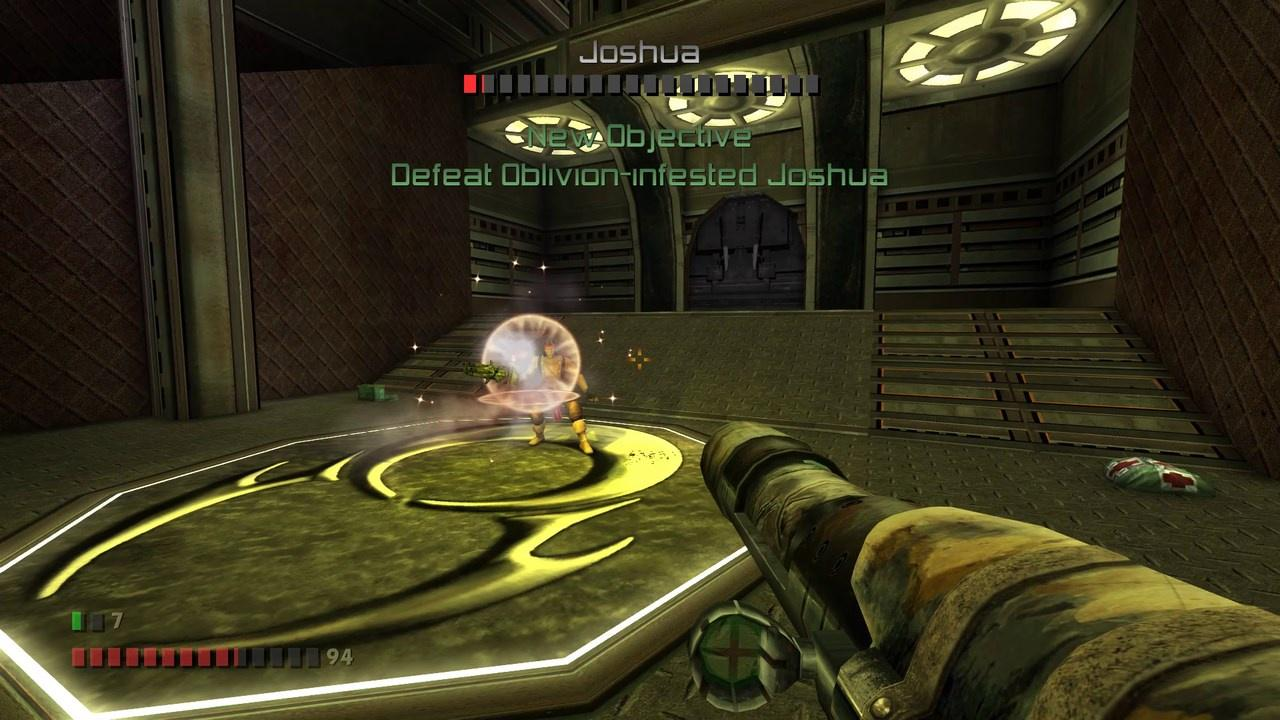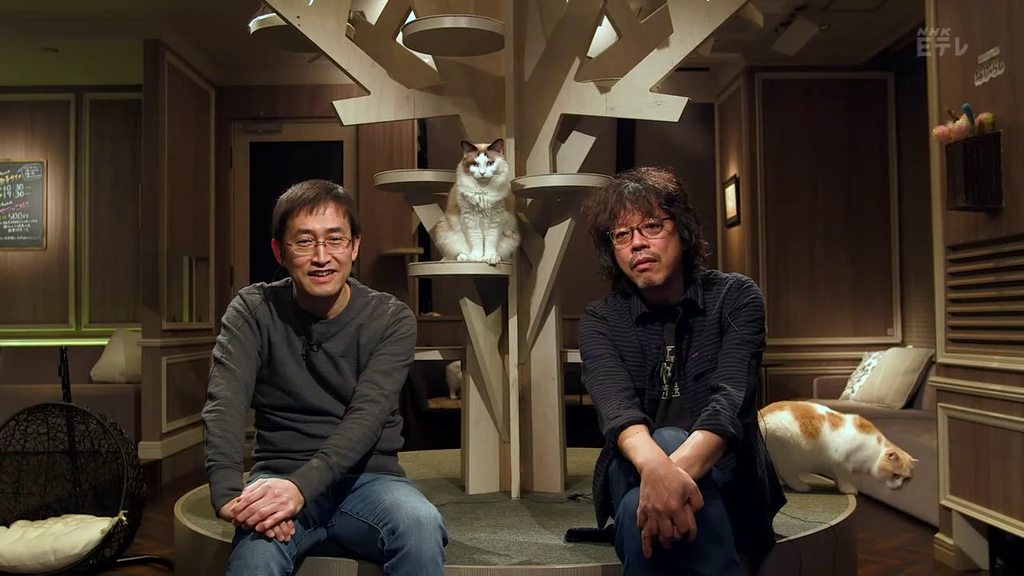Randviews: You Know, Like, Random Reviews
Posted in Anno Domini Wed Nov 13 2024
As a warmup for having to hack together a whole bunch of words over the next month after months of accumulating rust, here are some random reviews of things I've inflicted upon myself, some of which are from the archives of other sites and have been hastily shoehorned into a loose format, all united by one core unifying factor: I didn't type enough for them to deserve their own post.
This will probably be a recurring thing.
Turok 3: Shadows of Oblivion Remastered

I beat this remaster back in December 2003, using Danielle. It is very silly, desperately wants to be Half-Life on a console that could never handle Half-Life, is incredibly rushed to the point where one weapon's per-character upgrade is three paces away from the weapon itself, and ends with not one, but two nonsensical cliffhangers that were never followed up on in any future game, because as far as I can tell every single subsequent game was a reboot. Like, every single time!
There are flashes of good therein (The "Lost Land" levels were an utter blast IMHO) and I enjoyed my four hours with it, but it mostly serves as a reminder of what could have been if the devs had like, six more months and an enhanced Dreamcast port ala Shadowman to chew on.
The lack of multiplayer in the Remaster is a pity, but as far as I can tell the modern audience for Turok 2 Multiplayer is in the single digits, so, you know, whatever.
- Best Bit: The Lost Land chapter, minus that one confusing puzzle boss.
- Worst Bit: The volcano chapter, which feels unfinished.
- Worth The Price: Wait for a sale. A great remaster of a perhaps less-great game.
The Last and First Men
As much of a fan as I am of the avant-garde rock/metal (read: there's brass sometimes but not in a ska way) diaspora that formed in the wake of Mr. Bungle's apocalyptic first run blasting a rubble-strewn path through the heavy music world, I tend to approach Tub Ring's new releases with blend of anticipation and anxiety - when they're good, they're very, very good! But they've always been a mixed-bag of glorious earworms with the occasional tapeworm hiding away. Combine that with their long span between releases, and there's always this little doubt in the back of your head that you might've just waited one or two presidential administrations for more clunkers than cash. Thankfully, this extremely isn't the case with The Last and First Men, which is absolutely my favorite album of the year on the balance of things.
Bouncing from sublime pop to bratty rock to everything else in the gradient between, each track mines the full potential of the enlisted players, with R&B synths, rock three-pieces and even occasional brass and string sections butting in. It all somehow gels together, providing a slickly-produced compliment to Kevin Gibson's vocals exploring every notch on the volume dial, crawling and lunging through lyrics that provide just enough hint of a sci-fi tale of betrayal and escape that your mind starts writing the rest for you unprompted.
Probably the greatest compliment I can pay this one is that I don't have a favorite track. I'll fixate on one for a week before moving to another. I suspect by this time next year almost every track will have been my favorite track at least once. If I did have to make one critique, though, it's the new version of Heathens - resurrected from a rare Great Filter b-side - lacks a lot of punch compared to its origin's crazy-noisy garage demo recording where every drum hit blows the microphone out. I'm usually not a proponent of brickwalling, but in this case, I could do with a slight sprinkling. You know, as a treat.
- Best Bit: My opinion changes every week. This week it's No There To Go Back To.
- Worst Bit: Figure Eight feels a bit meandering and loose in ways the rest of the album isn't.
- Worth The Price: Oh yeah.
Urasawa Naoki no Manben

This should probably be apparent to anyone who's been exposed to my scrawlings by now, but I am not a skilled artist. I am however, a complete gear-and-process-whore with a shelf covered in pens and markers of wildly varying usefulness, and love learning more about how people who can actually make marks on surfaces with competence ply their craft. Manben is one of my favorite long-running demonstrations, letting you witness the hows and whys of people at the top of their game in a clear, accessible fashion.
The format is simple: Small, unmanned cameras are placed around a top-tier manga artist in their studio for several days as they beaver away on their projects. Some time later, they meet up with fellow mangaka Naoki Urasawa to watch over the footage and discuss process and methods. This is all nicely edited together and packaged up with some info about the artist's life and career.
Urasawa makes for an excellent host, asking all the right questions and provoking interesting conversations out of the shy loners he pulls away from their drawing boards. His fascination with how people do things differently from his own processes is legitimate and adds a sense of glee to proceedings. And of course, the art is for the most part all fantastic - watching it all come together in so many different ways is wonderful, and you get the feeling throughout that Urasawa is openly counting his lucky stars at finding an excuse to be able to do this on someone else's dime!
Some of the most recent episodes play with the format a bit by focusing on artists posthumously - bringing in established artists in their own right that started their careers as assistants and exploring original art archives and file footage to try and uncover their methods after the fact. While these episodes lack the voyeuristic perspective of watching over the shoulders of skilled craftspeople, Urasawa's giddiness at playing archeologist comes through strongly, and the interviews with the assistants provide a fresh, living perspective into the people who built the modern world of Japanese comics (and by extension, a whole lot of modern international pop-culture).
- Best Bits: Junji Ito laughing about the childish ridiculousness of his work while sitting in a cat cafe watching himself draw a person tearing their own face off in graphic detail, as bored house-cats impassively file in and out of shot. Some close seconds would be Urasawa being rendered speechless upon being shown the original final art for the legendary final page of Tetsuya Chiba's Tomorrow's Joe, and finally witnessing the unfinished next chapter of an incomplete Osamu Tezuka story he waited patiently for as a child.
- Worst Bits: Most episodes largely ignore the artists' various assistants and their effect on the final product. It would have been nice to see some more of the co-operative approach required to hit weekly manga magazines' infamously-insane deadlines, especially with the late Takai Sato and his infamous assembly-line approach where each page had scores of different artists drawing different elements.
- Worth The Price: Not available for sale in English in an official form, sadly. Some officially-translated versions of the most recent episodes can be found on NHK World's website as free limited-time streams, and fan-subs exist for most, but not all episodes.
Balatro
I don't even have to review this, do I?

For the historical record, I logged 24+ hours on the demo. The demo. This is a game so intensely crack-like in its grip on me, even in the demo stages, that if memos were leaked revealing that the CIA was involved in development I wouldn't be hugely shocked.
- Best Bit: Seeing fire spark up on the scoreboard before you even play your hand, such is your dominance.
- Worst Bit: The Eye. Also: Verdant Leaf.
- Worth The Price: You probably already have 48 hours logged in it.
| Archives | Previous Post | To the Top | Next Post | Get in Touch |